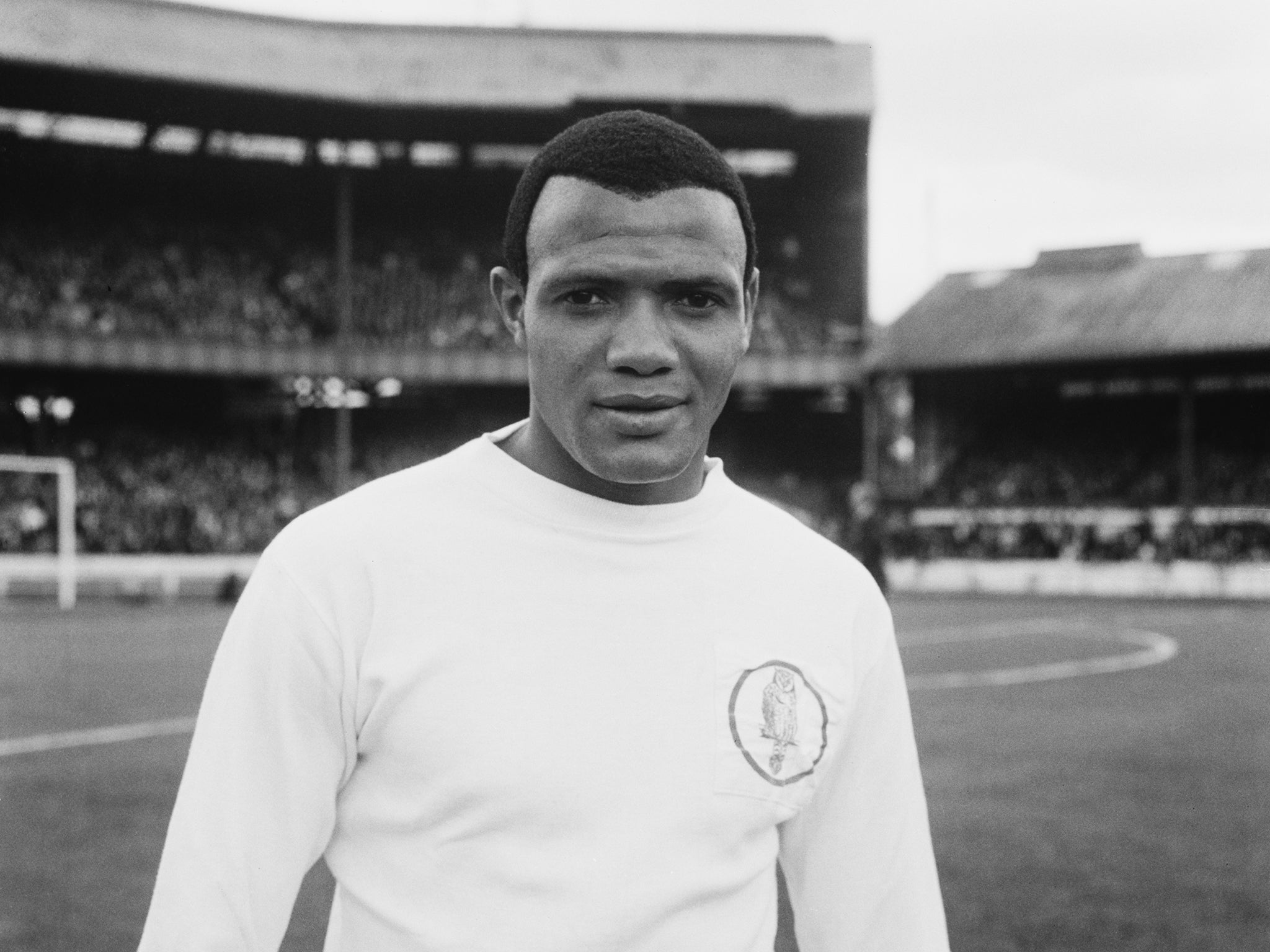Albert Johanneson: Sad tale 50 years on of football’s first black FA Cup finalist
Leeds left-winger played in the 84th FA Cup final

When the teams walked out at the 1965 FA Cup final, 50 years ago today, one player stood out. Not the physically imposing “Colossus” Ron Yeats, nor the diminutive flame-haired “five foot, four inches of barbed wire”, Billy Bremner. It was Albert Johanneson, the Leeds United left-winger.
This was the 84th FA Cup final and Johanneson was the first black footballer to play in one. South African by birth he had come to England four years earlier and proved a key figure in Leeds’ promotion from the Second Division in 1963-64.
Immigration was an even more contentious topic in England then than now. Boarding houses in London still had signs stating “No Irish, no blacks, no dogs”. The first Race Relations Act, which would still not bar such discrimination, would not be passed until later in the year. It was three years before Enoch Powell’s infamous “rivers of blood” speech.
Pioneers Andrew Watson and Arthur Wharton played in the late nineteenth century, the latter reaching the semi-final with Preston, but black players were still relatively rare in the English game. One was Johanneson’s compatriot, Gerry Francis, whose presence at Leeds was a factor in his signing for Don Revie’s team.
Francis soon left for York City but Johanneson became a fixture. “When we won promotion he played brilliantly,” said Leeds team-mate John Giles. “I thought he was going to be a star. He had good control, pace, he was well-balanced, he could beat people at close quarters and he finished well.”
The spotlight of the First Division, however, proved more daunting. Johanneson had grown up under the apartheid regime with blacks continually told they were inferior and treated as such.
“Albert had no confidence,” said Bremner. “He could play, but it was as if Albert couldn’t believe it was happening to him, as if he thought a black man wasn’t entitled to be famous.” Giles added: “He couldn’t seem to cope with the First Division. It seemed a psychological barrier.”
Racism, from the terraces and other players did not help. In one match Johanneson told Revie an opponent was calling him a “black bastard”. Revie replied: “Call him a white bastard then!” George Best later reflected: “Albert was quite a brave man to actually go on the pitch in the first place.”
Before the FA Cup final Johanneson was overcome by nerves and violently sick. This is not unique but he went on to have a subdued game. Liverpool dominated but needed extra-time to win, goals from Roger Hunt and Ian St John sandwiching Bremner’s reply.
Johanneson’s career went into decline after the final. Injuries, brought on by brutal defenders, and the emergence of Eddie Gray limited his appearances before he left Leeds for York in 1970, retiring two years later.
There followed problems with depression and alcoholism. Former team-mates tried to assist but, in September 1995 Johanneson was found dead in a small council flat in Leeds, largely destitute, aged 55.
Join our commenting forum
Join thought-provoking conversations, follow other Independent readers and see their replies
Comments
Bookmark popover
Removed from bookmarks